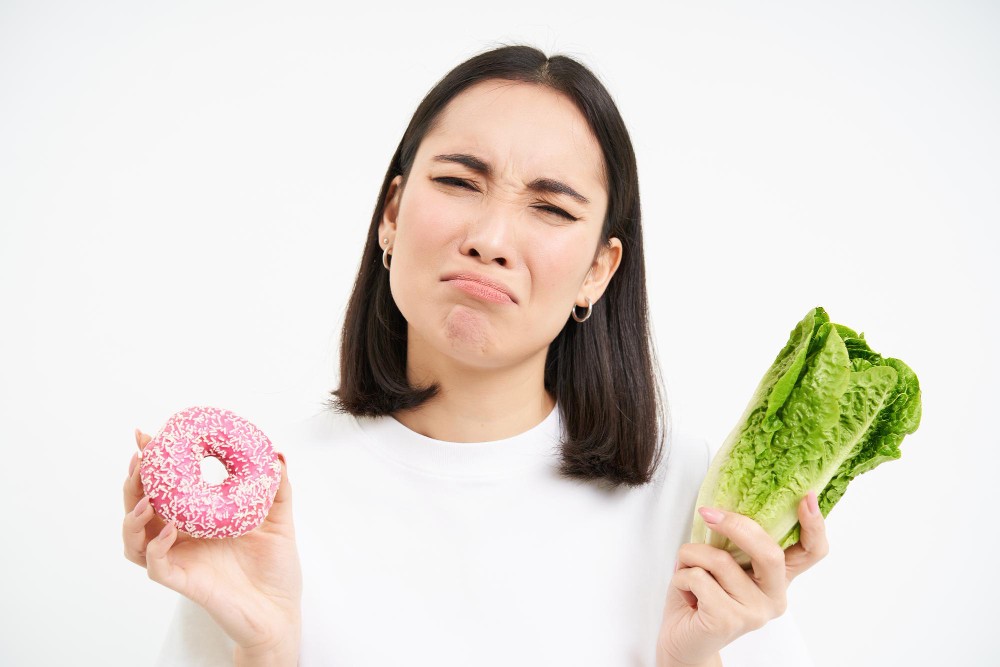A stomach ulcer, also known as a peptic ulcer, occurs when sores form on the lining of the stomach, leading to discomfort like bloating, heartburn, and nausea. Avoiding certain foods can help manage these symptoms and promote faster healing.
What is a stomach ulcer?
A stomach ulcer is an open sore in the stomach lining, often caused by a bacterial infection. This condition is a common cause of stomach pain, usually felt at a specific point. With proper treatment, ulcers can heal relatively quickly, but without care, they can erode the stomach wall and lead to serious complications.
Stomach ulcers don’t always present obvious symptoms, which makes it easy for people to overlook the condition. However, common signs include:
- Heartburn
- Bloating
- Feeling full shortly after starting a meal
- Acid reflux
- Nausea and vomiting
- Excessive burping
Foods to avoid with a stomach ulcer
Stomach ulcers cause sores in the digestive tract, including the stomach, esophagus, or small intestine. Certain foods can irritate the stomach and worsen the condition. Here’s what to avoid:
- Alcohol: Drinks like beer, wine, and liquor can inflame and irritate the stomach lining, worsening ulcers.
- Milk: Contrary to popular belief, milk can stimulate stomach acid production, which aggravates ulcers.
- Fried foods: High-fat foods fried in oil can damage the stomach's protective lining and make ulcers worse. Avoid all fried items, such as chips and greasy foods.
- Acidic foods: Foods high in acid, like tomatoes, oranges, and lemons, can increase stomach acid production.
- Processed foods: Heavily processed foods with high levels of fat, salt, or sugar can cause excess acid production, irritating the stomach.
- Spicy foods: Spicy ingredients like chili peppers, radishes, black pepper, and spicy sauces can worsen symptoms.
- Certain meats: Stay away from heavily seasoned or fatty meats, including processed meats and sausages.
- Chocolate: Chocolate may trigger acid production, worsening symptoms for some people.
How to treat a stomach ulcer
Treatment for stomach ulcers depends on the underlying cause. If the ulcer is due to an H. pylori bacterial infection, antibiotics are necessary. Doctors may also prescribe medications to reduce stomach acid and protect the stomach lining from further damage.
Other treatment recommendations include avoiding foods and drinks that can irritate the ulcer, as well as stopping smoking and alcohol consumption. Seek immediate medical attention if symptoms worsen and are accompanied by stomach pain, blood in the stool, vomiting blood, pale skin, or fainting.
Because stomach ulcers often don’t show distinct symptoms, they can be easy to miss. If you experience any signs of a stomach ulcer, it is best to consult a doctor. You can also make use of the consultation features that are available in the Ai Care application by downloading the Ai Care application from the App Store or Play Store.
Looking for more information about other diseases? Click here!
- Sean Edbert Lim, MBBS
Richmond, C. (2022). Best and Worst Foods for Stomach Ulcers. Available from: https://www.webmd.com/digestive-disorders/ss/slideshow-stomach-ulcers-best-worst-foods
Gillson, S. (2023). Following an Ulcer Diet. Available from: https://www.verywellhealth.com/what-can-i-eat-if-i-have-a-peptic-ulcer-1742154
Eagle, R. (2020). What are the best foods to eat with a stomach ulcer?. Available from: https://www.medicalnewstoday.com/articles/stomach-ulcer-diet
Watson, K. (2023). Stomach Ulcer Diet. Available from: https://www.healthline.com/health/stomach-ulcer-diet
Cleveland Clinic. Stomach Ulcer. Available from: https://my.clevelandclinic.org/health/diseases/22314-stomach-ulcer
Mayo Clinic. Peptic Ulcer. Available from: https://www.mayoclinic.org/diseases-conditions/peptic-ulcer/symptoms-causes/syc-20354223











